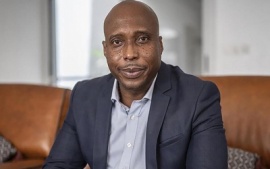
Un nouveau Groupe consultatif pour l’Afrique (Advisory Council for Africa-Aca) comprenant 15 pays africains dont le Sénégal a vu le jour, à l'occasion du Sommet Etats-Afrique, rapporte le service de presse de la Présidence de la République sénégalaise.
Le communiqué transmis à l'APS, précise que cette initiative figure parmi les "retombées positives et concrètes" du Sommet afro-américain, "suite à l'action du Président Macky Sall" lors de cette rencontre de deux jours qui a pris fin mercredi Washington.
"Le Aca aura pour rôle de suivre ainsi que de faciliter l'augmentation des flux d'investissements américains vers ces 15 pays d'Afrique", souligne le texte.
Il précise que "c'est suite à la rencontre du Président Macky Sall avec le Secrétaire d'Etat américain au commerce, Madame Perry Pritzker, qui s'est tenue à Washington le 05 août dernier, que la nouvelle fut annoncée".
"Ce groupe spécial, mis en place avec l'administration américaine, fait partie intégrante des mécanismes de suivi mis en place pour assurer la concrétisation des projets et ambitions nés du sommet Etat-Unis-Afrique", conclut le communiqué.
Le Sommet Etats-Unis-Afrique, le premier du genre, vise à renforcer les relations économiques entre les Etats-Unis et les pays africains.
Lors du sommet, le président Barack Obama a annoncé, mardi 5 août, 33 milliards de dollars de nouveaux engagements — aide publique et investissements privés — en faveur de l'Afrique.

































4 Commentaires
Again
En Août, 2014 (12:27 PM)Kdkfkf
En Août, 2014 (13:04 PM)Ce N' Est Pas Nouveau
En Août, 2014 (18:33 PM)To highlight the importance of strengthening PPPs in implementing health programs, the chief executive officer of the Association of Private Health Facilities in Tanzania (APHFTA) and a member of ACA’s Network for Africa advisory board committee, Dr. Samuel Ogillo, graced the event as the chief guest and shared his experience in incorporating PPPs in his work. In his key note address, Dr. Ogillo made a presentation on the importance of public-private partnerships for improved quality of health in Africa.
He analyzed the health situation in sub-Saharan Africa and made comparison to Asia’s success in including the private sector’s investment in health. He said that this had led to the scale up of healthcare delivery that has seen an improvement in health for citizens in Asian countries.
“Public health resource allocation should be based on quality health service delivery rather than the type of provider as African countries aim to achieve national and global health goals and ensure citizen’s health needs are met.” Dr. Ogillo stated as he shared Tanzania’s experience and challenges through the transition in integrating PPP in the country even from actors in the private sector.
In concluding his presentation, Dr. Ogillo called on CSOs and FBOs to take lead and work closely to push forward advocacy interventions on enhancing PPPs in health. “ACA should play its role and help build CSOs’ capacity to be able to have discussions with the public sector, government, healthcare providers and other stakeholders to integrate private sector involvement and come up with the best approach to take in order to utilize available resources, reduce the cost of healthcare services and improve the quality of primary healthcare in sub-Saharan Africa.
ACA’s acting Executive Director, Kristi Maasjo, also discussed the organization’s sustainability and strategic plan, stating that the organization had to come up with ways of cutting costs, given the shift in donor funding. She pointed out the importance of collaborating with MIs to come up with revenue sharing agreements for continuity in implementing ACA activities, specifically training courses. The MIs commended ACA for successfully working through the financial challenges. They said that they had picked lessons from ACA’s experience during the transition period of implementing the new strategy despite the budget reduction. They requested ACA to provide technical support to member institutions as they were also adjusting to changes in donor involvement, since they are also faced with the same realities of reduced funding for their programs.
The board elections were also conducted, with only two electoral positions being declared vacant by the chairman to the board. In a two round electoral process following a tie between three organizations in the first round, IDI of Uganda and ISTT of Zambia emerged winners, with MANANGA of South Africa coming in a close third. In her closing remarks, outgoing vice chair to the board, Edith Akankwasa of Mildmay Uganda said she will continue to support the GC and wished the incumbent board members well as they continue to support the implementation of ACA activities.
Ny
En Août, 2014 (20:30 PM)Participer à la Discussion